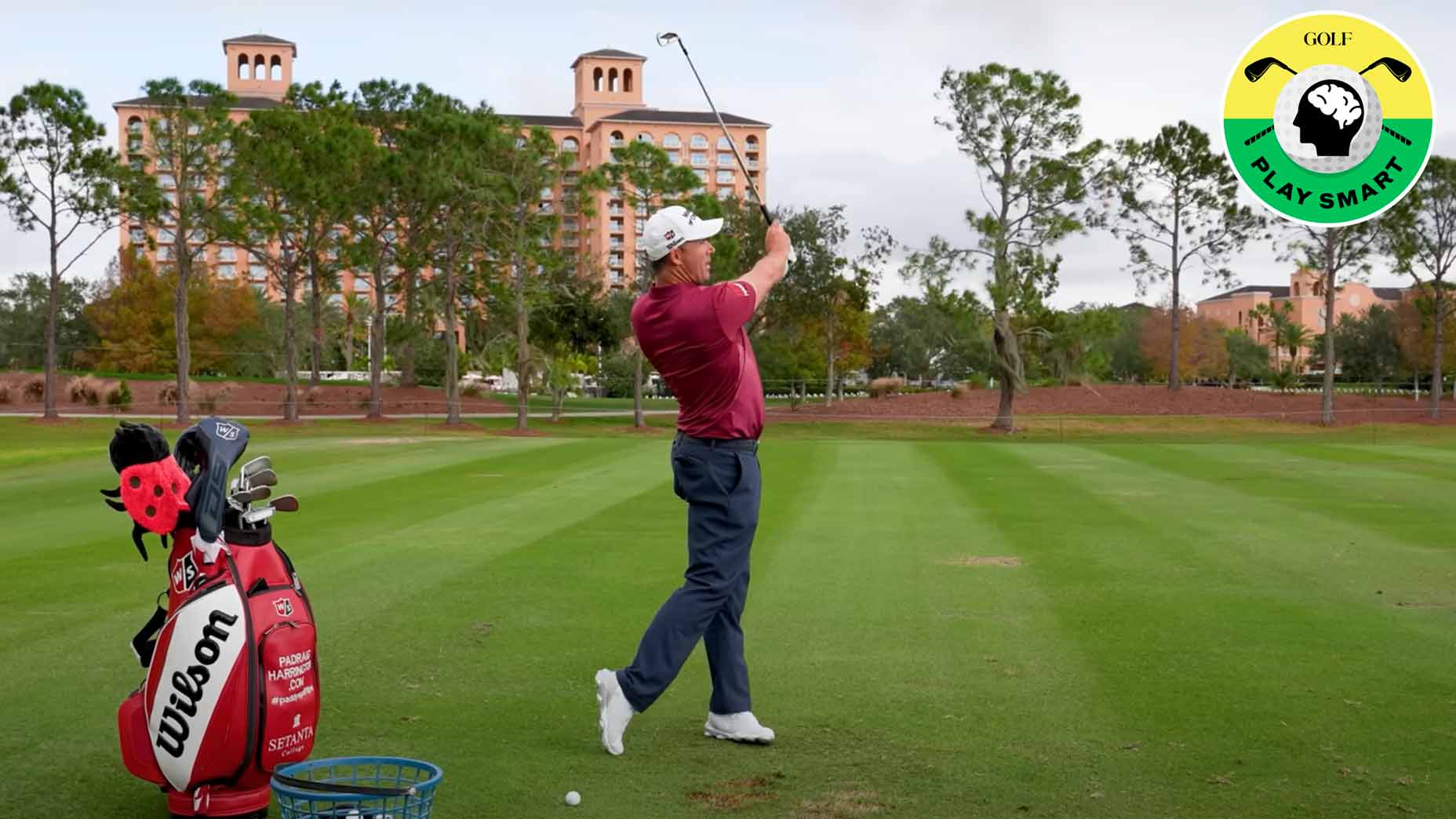Welcome to Play Smart, a regular GOLF.com game-improvement column that will help you play smarter, better golf.
One of the most common pieces of advice for those looking to add speed is a simple one: just swing harder. Literally just get on the range and swing out of your shoes, giving little thought to where the ball goes. It’s a method of speed training that teaches your body how to swing hard and gets you used to moving fast.
Simple, right?
Well, as anyone who’s speed trained will tell you, it isn’t always so easy. Despite putting in max effort on each and every swing, it doesn’t always produce results. That’s because effort isn’t the only thing that matters in the swing — efficiency is important, too.
That’s where getting your swing synced up comes in. If you can properly sequence your legs, torso and arms, you’ll produce maximum efficiency — and with it, maximum clubhead speed. The trouble is, most golfers have zero idea how to sync up these vital components.
“We want to make sure that everything is moving [together],” says two-time major winner Padraig Harrington. “That we have the right amount of torso and the right amount of arms.”
Many golfers have no idea what that looks and feels like, though. When they try to really go after the ball, they’ll swing their arms too far back without enough shoulder turn, which causes an ineffective out-of-sync move.
To fix this, feel like you’re making a huge shoulder turn while making a shorter arm swing. It will produce a more compact swing that is more in sync, and one that generates much more power.
“The feeling of a shorter arm swing both back and through will lead to a better relationship with your body,” Harrington says. “And your body will actually turn more to compensate for the short arm swing.”
When you focus on this short-arm swing and full-body turn, it helps create the proper sequencing your swing needs — and with it maximal efficiency.
Need help unriddling the greens at your home course? Pick up a custom Green Book from Golf Logix.
